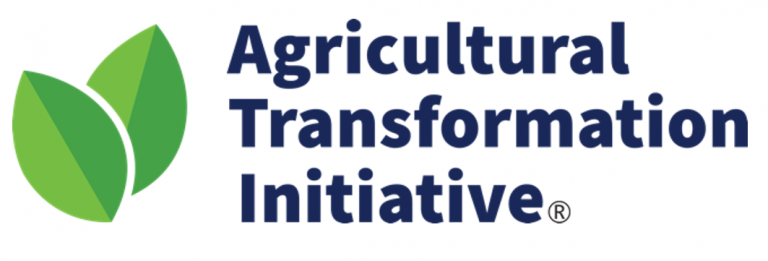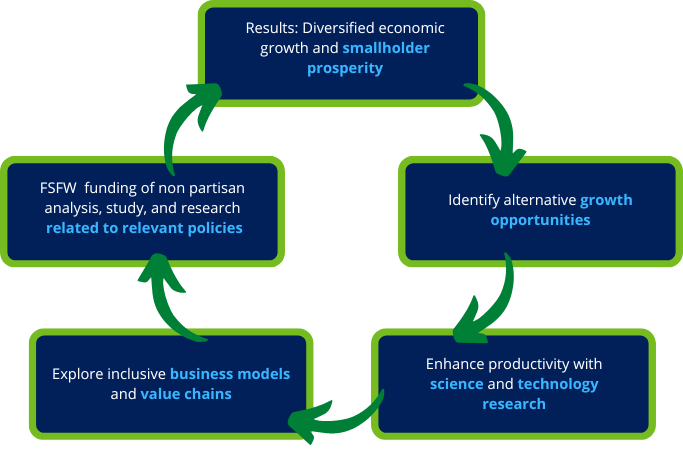
The Agricultural Transformation Initiative (ATI), an entity funded by the Foundation for a Smoke-Free World (FSFW), operates in Malawi for the charitable purpose of exploring and promoting sustainable agricultural alternatives for tobacco farmers and tobacco land. ATI supports the development of a diversified agricultural ecosystem to prepare smallholder tobacco farmers for a time when there will be a reduced demand for leaf tobacco.[1]
ATI-supported activities target the following outcomes:
To achieve these outcomes, ATI supports a systems approach to understanding local contexts and potential points of intervention. A systems-thinking approach is well suited to tackling complex development problems, as it incorporates multifactor analysis and feedback loops to foster better decision-making at various levels. In addition, a focus on outcomes ensures that each charitable dollar spent contributes to building capacity and strengthening local and national economies in a sustainable way, helping to foster a better future for smallholder farmers, their families, and their communities.
A virtuous cycle created by charitable investment in science- and technology-driven innovation and policy research.

Declining demand for tobacco leaf could have devastating effects on farmers in Africa. The Foundation selected Malawi as the first country for its ATI programming because Malawi has a uniquely great need. Malawi’s economy is highly dependent on tobacco, and the Malawian people suffer from a disproportionate burden of poverty and food insecurity. Furthermore, current government, nonprofit, and private sector interests render Malawi a country with promising circumstances for change. The Foundation’s Malawi Country Report provides a high-level summary of the tobacco sector in the country.
Bearing in mind the complex dynamics of the agricultural sector in Malawi in Malawi, the government appears receptive to reducing its overreliance on tobacco. This is evidenced by its explicit focus on diversification and sustainable agricultural transformation in Malawi’s key policy frameworks, such as Malawi Vision 2063 and other initiatives.
ATI’s projects are valuable only if the benefits trickle down to the individual farmer, so that individuals’ incomes, assets, and consumption are positively affected. Therefore, the smallholder farmer is at the center of all programming.
The United Nations’ 17 Sustainable Development Goals (SDGs) are the world’s shared plan to end extreme poverty, reduce inequality, and protect the planet by 2030. Through the ATI’s agenda, the Foundation seeks to advance SDG 2, “End hunger, achieve food security and improved nutrition, and promote sustainable agriculture.” There is particular emphasis on Target 2.3, “Double the agricultural productivity and incomes of small-scale food producers;” and Target 2.4, “Ensure sustainable food production systems and resilient agricultural practices.” [4]
As the Foundation conducts its charitable work in Malawi and beyond, it will continue to prioritize research, community-based initiatives, and innovations. These efforts will simultaneously—and independently—support an inclusive growth model for agricultural diversification and help prepare smallholder farmers and farms for a time when we all are living in a smoke-free world.
[1] FSFW Strategic Plan, 2022-2024. (2022, March 2). https://www.smokefreeworld.org/strategic-plan-2022
[2] Centre for Agricultural Transformation. (n.d.). Technology and entrepreneurship for Malawian agriculture. https://catmw.org/
[3] MwAPATA Institute. (n.d.) https://www.mwapata.mw/
[4] United Nations Department of Economic and Social Affairs. Sustainable development. (n.d.) Transforming our world: the 2030 Agenda for Sustainable Development. https://sdgs.un.org/2030agenda
© 2023 Foundation for a Smoke-Free World. All rights reserved.